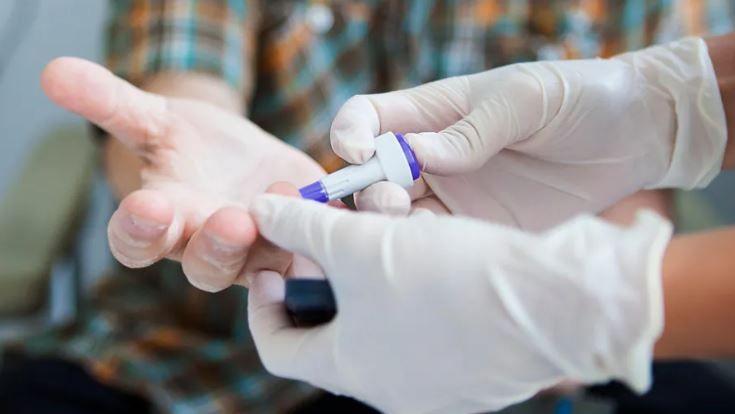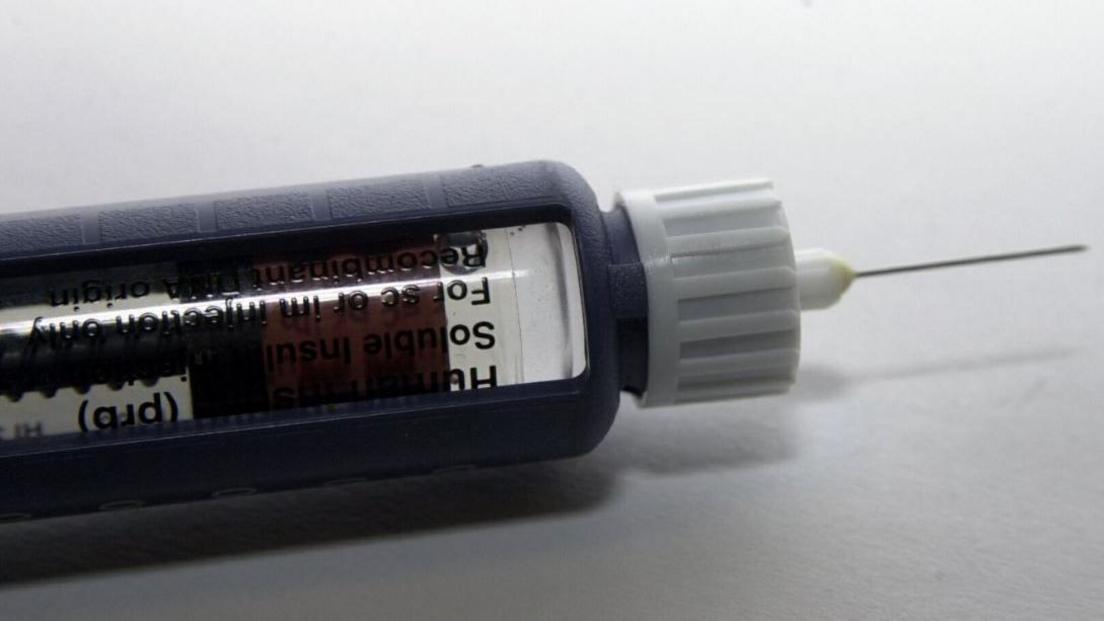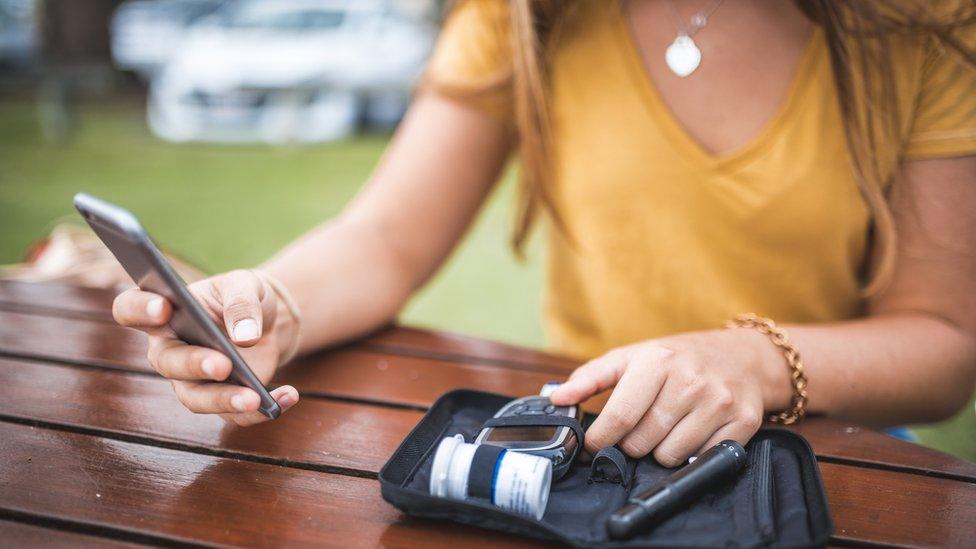Call for diabetes spending to focus on prevention

Diabetes-related complications affect thousands of people, said Diabetes UK
- Published
Billions of pounds each year is being spent on "potentially preventable" complications of diabetes, researchers have said.
The NHS should shift its focus "from crisis to preventative care" to reduce harm to patients living with the condition and also bring costs down, experts suggested.
The Diabetes UK charity, which commissioned the research by the University of York, estimated that more than 4.4 million people in the UK live with diabetes.
The NHS said more than 1.6 million people in England had benefited from the NHS Diabetes Prevention programme.
'Very costly'
The research estimated the direct cost of diabetes had increased by almost £1bn in 12 years.
Academics estimated the direct cost of diabetes to the NHS was about £10.7bn in 2021/22, up from £9.8bn in 2012.
Twelve years ago about 80% of costs were down to diabetes-related complications, such as problems with the kidneys, eyes, circulation, and nerve damage, but improvements in glycaemic control had reduced this figure, researchers suggested.
In 2021, about £6.2bn was still being spent on "potentially preventable complications" each year, Diabetes UK suggested.
The remainder, about £4.4bn, was spent on diagnosis, GP appointments, eye screening, blood tests, medication, support programmes and specialist diabetes teams.

Nick Hex from the University of York said diabetes affects people on a daily basis on many different levels
Colette Marshall, chief executive of Diabetes UK, said the research painted a "stark picture".
"These complications cause untold hardship to many thousands of people and are, in most cases, preventable with the right care," she added.
Nick Hex, associate director for the NHS and public sector at the York Health Economics Consortium, said diabetes remained "very costly to the NHS, and the majority of those costs are still spent on potentially preventable complications".
An NHS spokesperson said: “More than 1.6 million people in England have benefited from the NHS Diabetes Prevention programme, while our world-leading Path to Remission programme, which includes soups and shakes diet replacements, is helping thousands of people with diabetes to improve their health."
Follow BBC Yorkshire on Facebook, external, X (formerly known as Twitter), external and Instagram, external. Send your story ideas to yorkslincs.news@bbc.co.uk, external
Related topics
More stories like this
- Published19 February 2024
